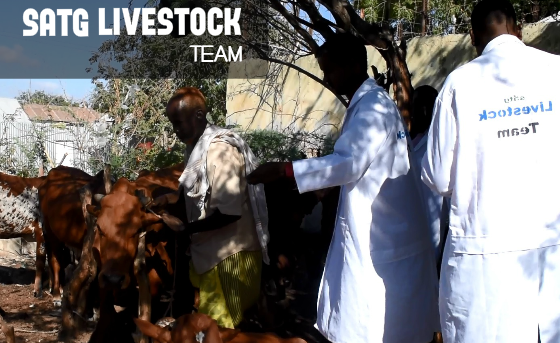The concept of Village based Advisors(VBA) is getting lot of traction in Africa.
Variously designated as Village Enterprise Advisors or Proxy Sales Force or even as Village wealth Advisors these youth are supposed to provide the last mile link between various input providers and extension and research agencies. Depending on the brief these youth are required to provide various services that are required to both in input agencies as well as the small holder farmers. Some of these services include providing seeds and fertilisers in small and affordable packs, educating farmers on how to vaccinate the live stocks like poultry, carrying soil samples for soil testing, getting the geo locations of farmer fields and so on. It is expected that these VBAs can also contribute to ensuring food security in the face of climate change by helping farmers with newer varieties of crops and inputs. If more attention was given to selecting the right candidates based on psychometric assessment, the performance and sustainability of this innovative approach to extension could be increased.
Individuals with an entrepreneurial outlook are more likely to succeed in developing business links. A good command over communication can go a long way in establishing credibility of the advisor.

Good and precise communication with a positive attitude and leadership skill helps in the following manner:
- Building Trust and Rapport: Trust is the foundation of any successful advisory relationship. VBAs can establish trust by actively listening to community members, respecting their perspectives, and showing empathy towards their concerns. They should also maintain open and honest communication, demonstrating their commitment to the community’s well-being.
- Clear and Accessible Information Dissemination: VBAs often serve as intermediaries between communities and external agencies or organizations. They should be skilled at translating complex information into simple terms, making it accessible to community members. This includes explaining healthcare practices, agricultural techniques, or government programs in a way that is easy to understand.
- Tailoring Communication to the Audience: Different community members may have varying levels of literacy, language proficiency, and cultural backgrounds. VBAs should adapt their communication style and language to suit the audience they are addressing. This might involve using local dialects or visual aids for those with limited literacy.
- Promoting Health and Hygiene Practices: In healthcare-related roles, VBAs can succeed by effectively communicating the importance of health and hygiene practices. They should use clear and persuasive communication to encourage vaccination, family planning, sanitation, and other essential health behaviours. Demonstrating the benefits of these practices can motivate community members to adopt them.
- Conflict Resolution and Mediation: VBAs may also need to mediate conflicts within the community. Effective communication skills are essential in de-escalating tense situations, facilitating dialogues between conflicting parties, and helping them reach mutually agreeable solutions. This can contribute to social cohesion and stability.
- Advocacy and Resource Mobilization: VBAs often advocate for their communities’ needs to external agencies and organizations. They need to be adept at articulating these needs, presenting evidence-based arguments, and negotiating for resources and support. Effective advocacy can lead to improved infrastructure, access to education, and other development opportunities.
- Community Mobilization and Engagement: VBAs can succeed by engaging community members in various activities and initiatives. They should be able to organize community meetings, workshops, and awareness campaigns effectively. Clear communication is crucial in rallying community support and participation in projects that benefit the entire village.
- Feedback and Continuous Improvement: VBAs should encourage feedback from the community and be open to constructive criticism. This allows them to assess the impact of their work, make necessary adjustments, and continuously improve their services. Transparent communication about their efforts and results can also help in accountability.
- Crisis Management: In times of emergencies such as natural disasters or health crises, VBAs can help coordinate relief efforts and disseminate critical information to the community. Timely and accurate communication can save lives and minimize the impact of such events.

In short, effective communication is a linchpin for Village-Based Advisors to succeed in their roles. It enables them to build trust, disseminate vital information, promote positive behaviours, mediate conflicts, and advocate for their communities’ needs. By mastering these skills, VBAs can make a significant impact on rural development and community well-being.
However, we need to flag an important concern here. In many geographies such a set up operates on an informal basis and VBAs work on a shoestring budget. VBAs often collaborate with NGOs, developmental agencies and other stakeholders. These organizations provide some form of financial support, training, or resources to advisors for carrying out their work effectively.
Needless to mention that the success of the VBAs largely depends on their social capital, their desire to help the community, altruistic bent of mind and above all high motivation and fire in the belly. The identification and profiling of such VBAs through psychometric profiling would result in job creation and generation of wealth and offer an effective way of stopping migration of youth to urban centres.
ARTICLE WRITTEN BY ~ DR. RAJ DRAVID | SENIOR ADVISOR, UNIFIERS SOCIAL VENTURES PVT. LTD








Recent Comments